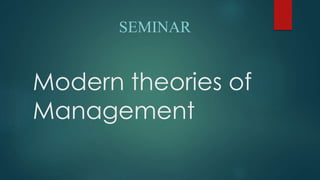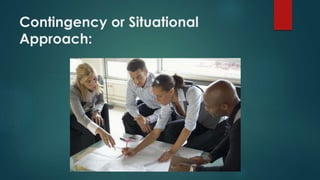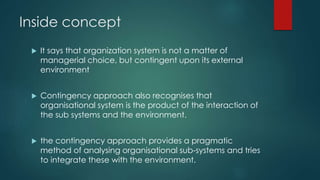This document discusses the contingency approach to management. It provides definitions and explanations of contingency theory. Some key points:
- Contingency approach argues there is no single best way to manage and the approach should depend on the situation.
- It recognizes management and organizational structures are influenced by internal/external factors and the environment.
- Major contributors to contingency theory developed the idea that leadership effectiveness depends on situational factors.
- The approach aims to understand relationships within/among organizational subsystems and with the environment to design appropriate structures for specific situations.

















